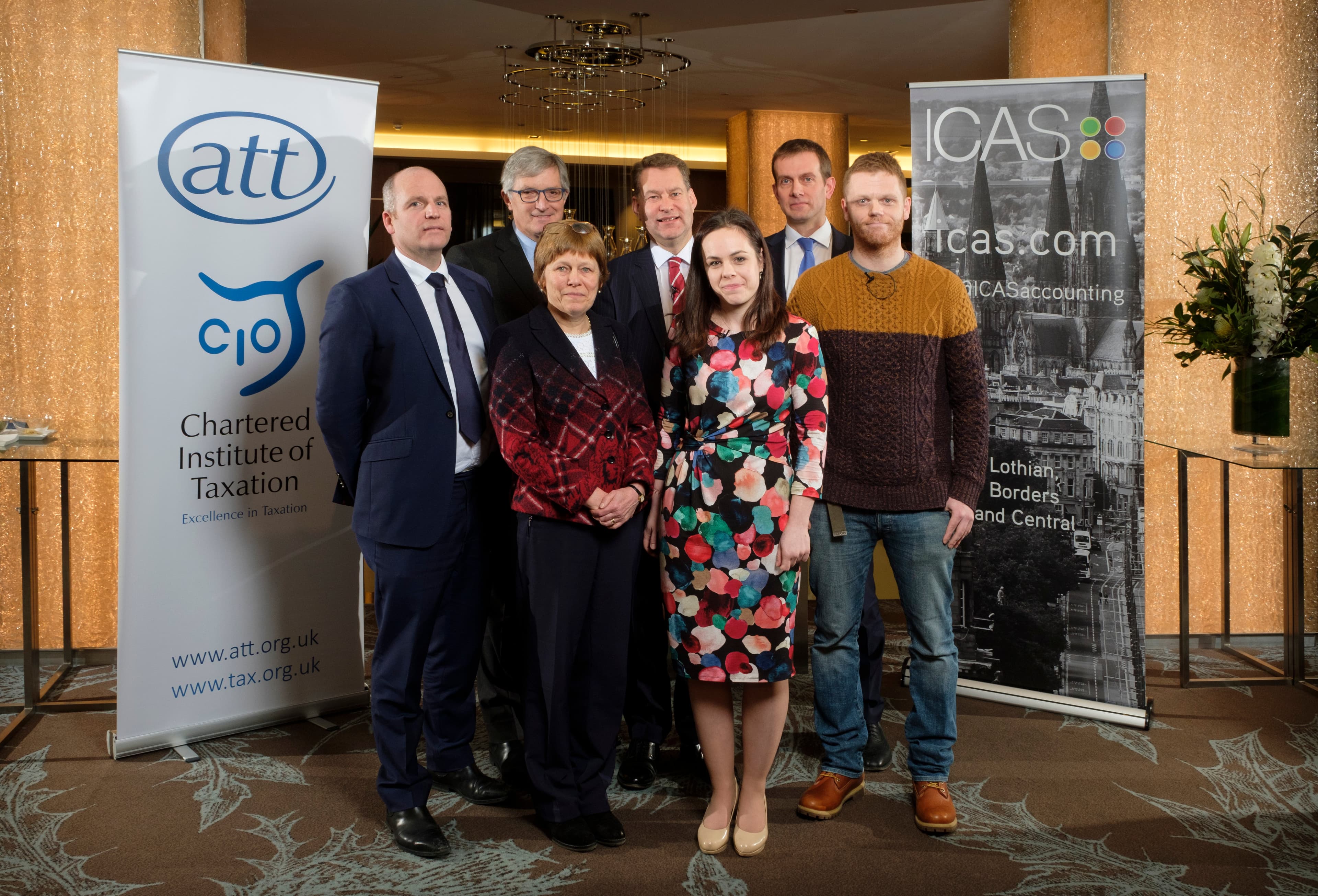‘Big Tax Debate’ shines a light on Scotland’s devolved taxes
More than 300 members of the CIOT and the Institute of Chartered Accountants of Scotland (ICAS) braved a cold Edinburgh evening – and predictions of ‘thundersnow’ – to attend the ‘Big Tax Debate’ in January.

Pictured from left to right are (back row); Glenn Campbell, Alan McFarlane, Murdo Fraser MSP, Alexander Garden and (front row); Charlotte Barbour, Kate Forbes MSP, Darren McGarvey.
The event – jointly hosted by CIOT and ICAS – brought together a panel of politicians and experts at Edinburgh’s Sheraton Hotel to debate the future of tax in Scotland.
Chaired by BBC Scotland political correspondent Glenn Campbell, panellists for the evening included the Scottish Conservative MSP and Shadow Finance Secretary Murdo Fraser and SNP MSP Kate Forbes – who also serves as the Parliamentary Liaison Officer (the Scottish Parliament’s equivalent of a Parliamentary Private Secretary, or PPS) to Finance Secretary Derek Mackay.
Joining them on the panel were the journalist and social activist Darren “Loki” McGarvey and Alan McFarlane, chair of the Reform Scotland think-tank and Senior Partner with the investment firm Dundas Global.
The discussion that followed was lively and largely consensual, with some in the audience noting that the tone of proceedings was much more conciliatory in nature than a debate on devolved taxes that had taken place earlier that day in the Scottish Parliament.
With Scotland’s taxes increasingly diverging from the rest of the UK, the debate began with a focus on the Scottish Government’s income tax proposals that, if approved by the Scottish Parliament, will introduce two new rates and bands of income tax and increase both the higher and top rates of tax by 1p.
However it was not long before the discussion strayed onto new areas of debate, with the panellists offering an array of possibilities for the future of taxation in Scotland ranging from the devolution of control over all areas of income tax (including the personal allowance) through to the possibility of new taxes on online retailers (dubbed the “Amazon Tax”) and the creation of a national commission to review the effectiveness of how we tax and spend public money.
For both CIOT and ICAS, the event provided an opportunity to highlight the work that both institutes have been doing in recent years, working together to raise awareness of the devolved taxes in Scotland.
In closing remarks to the audience, Alexander Garden, chair of the CIOT’s Scotland Hub, said it was “clear that we are on the cusp of quite fundamental change to the tax system here in Scotland”. He added: “this makes events like this all the more important, because they give us - as the tax and accounting professions – a chance to consider how this change will impact our day to day jobs, as well as considering the effects they will have on politics and society more generally”.
Charlotte Barbour, ICAS’ director of taxation, said after the event that it was important for members of both organisations to make their views known to government in Scotland. She noted; “Both ICAS and CIOT work hard to ensure that our members’ views and expertise are heard and ideally acted upon by both the Scottish and UK governments. But events like these – which we hope will be the first of many – give us a chance to take that one step further and provide decision makers and opinion formers with a forum to debate, discuss and decide how we ensure that tax policy is robust and is fit for purpose as tax powers are devolved from Westminster and implemented”.
By Chris Young.
